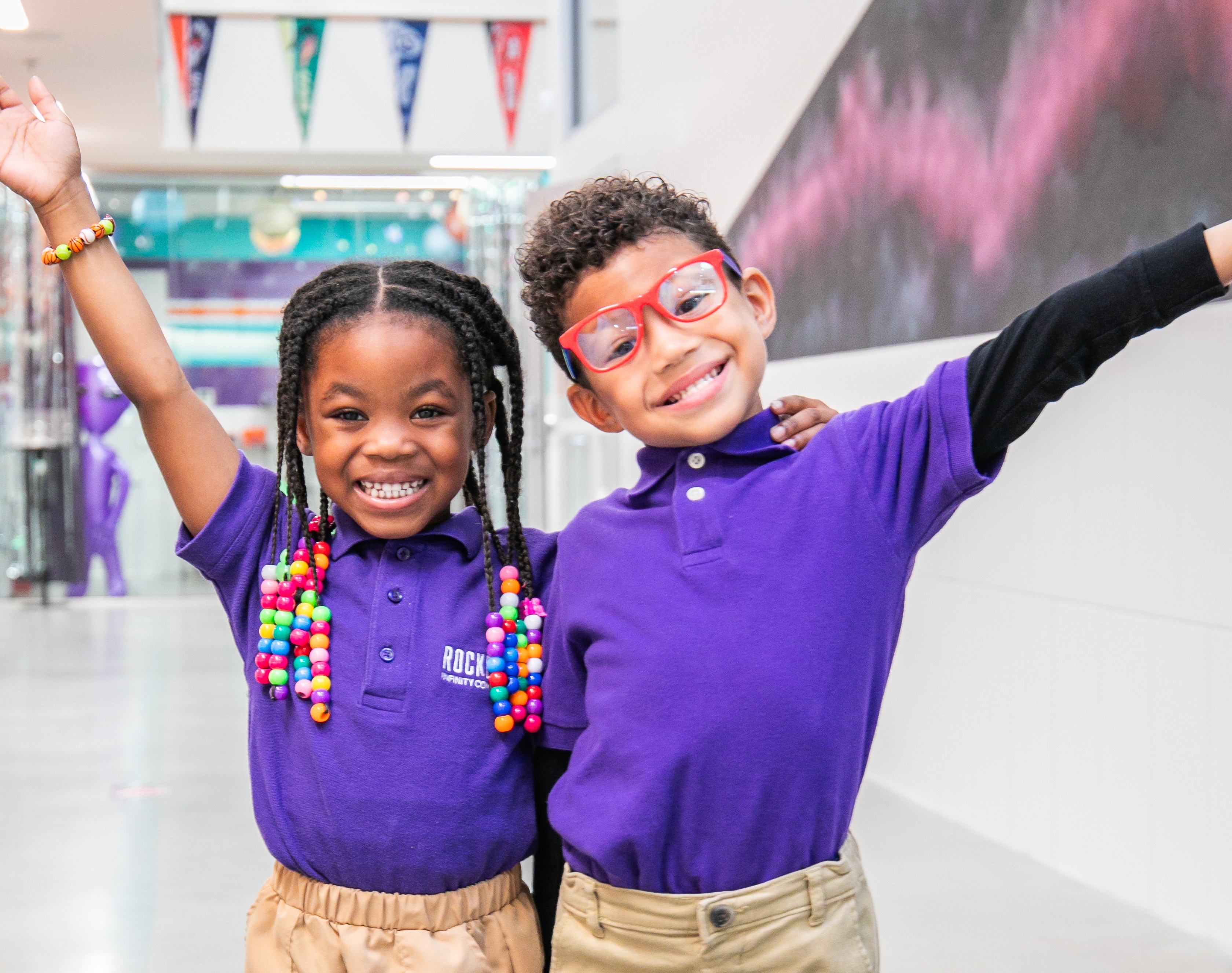
Kindergarten Readiness Checklist
Enrollment season is just around the corner, and if you’re wondering: “Is my child ready for kindergarten?” you’re not alone!
Starting kindergarten is a major milestone not just for children, but for their caregivers as well. Kindergarten readiness encompasses a wide range of milestones such as motor skills, social skills, language skills, and more. While this transition can feel overwhelming, preparing your child with foundational readiness skills can make it a positive and exciting experience.
We’ve put together a Kindergarten Readiness Checklist to help you and your child feel confident and ready to embrace this new chapter!
SOCIAL SKILLS
Recognizing & Writing Their Own Name
This might seem small, but many children only know themselves by nicknames at this age! Help your child learn and feel comfortable pronouncing their full name, and bonus points if they can write it down!
Interacting With Other Children
Can your child appropriately play and interact with peers their age? Commonly for kindergarten-aged children, most social experiences are with parents or siblings. Arranging opportunities for your child to meet and engage with other 4-5-year-olds can ease the transition into a classroom setting. Not sure where to start? Consider visiting local parks, community centers, or library storytimes to help your child get ready to socialize.
Engaging in Pretend Play
Pretend play isn’t just fun, it helps children develop creativity, role-playing skills, and the ability to follow a storyline, all of which are essential for early learning. Encourage your child to engage in imaginative play to build these important skills.
MATH SKILLS
Counting & Understanding Numbers
Counting is an important kindergarten skill. Before your child starts school, aim for them to count up to 10 confidently. Addition and subtraction in kindergarten usually stay within this range, so practicing these numbers is a great place to start. Beyond counting, it’s helpful if your child begins to understand simple number comparisons. Your child may be able to recite the numbers 0-10, but do they understand that 8 is more than 6 or that 2 is less than 5? These small steps can make a big difference in building early math confidence!
Identifying Basic Shapes
Knowing shapes like circles, squares, and triangles is necessary for any child starting kindergarten. But knowing more complex 2D shapes like ovals, rectangles, diamonds, and even stars or hearts will help build a strong foundation for them.
Recognizing and Completing Patterns
This might sound tricky, but it’s simpler than you think! This is probably a skill your child has already, but it’s important to name and have them understand what they’re doing. Take a look at the images below:

Can your child identify what comes next? They probably can! Here, it’s important to teach them how to identify a pattern, as well as what comes next in the sequence. This helps develop logical thinking skills they’ll use throughout their education.
LANGUAGE SKILLS
Knowing the Alphabet
By the first day of kindergarten, most teachers recommend that children recognize the letters of the alphabet. While this might sound ambitious, end-of-year English goals often include reading simple texts and common words—so starting with the basics is important!
Practicing Letter Sounds
In addition to the alphabet, help your child practice letter sounds. For example, the letter “C” sounds different in cat versus circle, and the letter “I” sounds different in ice versus igloo. Learning these variations early can set the stage for reading success!
Understanding Lowercase and Uppercase Letters
What about writing basics? Your child’s teacher will cover the difference between lowercase and uppercase letters, but teaching your child how to use proper capitalization when writing their name is a great foundation! If your kiddo is still working on their fine motor skills and struggles to hold a pencil, no worries – using a crayon is completely age-appropriate.
A Final Note of Encouragement
Remember that every child develops at their own pace, and no one skills checklist can capture everything your child is capable of. If your young learner isn’t able to check off every item yet, don’t worry! Simply being aware of these skills and working on them together is an excellent first step to start Kindergarten with confidence.
The journey to starting kindergarten is as much about supporting your child’s curiosity and love of learning as it is about specific skills. With the right preparation and a positive mindset, your child will be ready to shine on their first day of school!
For more helpful tips and resources, access our Kindergarten Readiness Kit here.
Interested in enrolling at one of our schools? Apply here!
Published on January 7, 2025
Read more stories about: Uncategorized.


